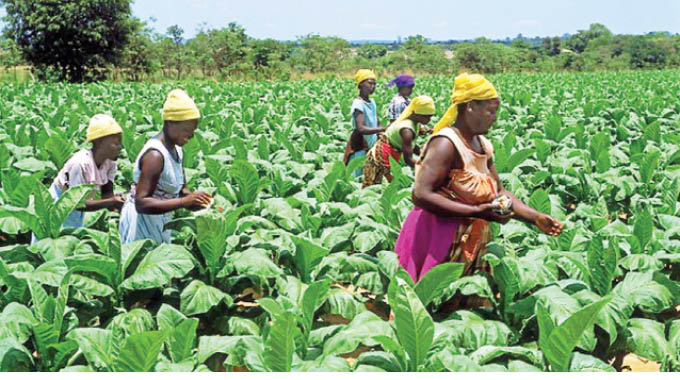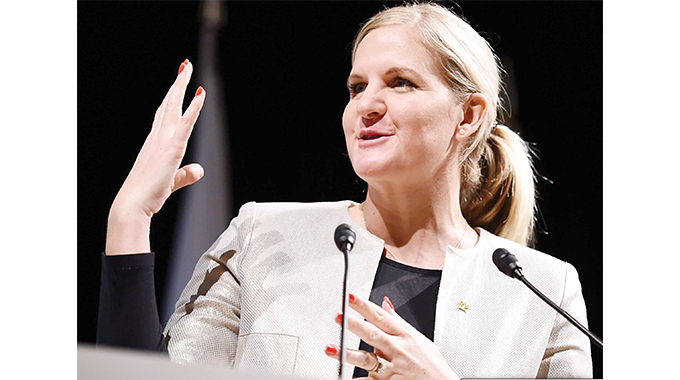Gokwe South RDC comes up with gender policy document

Patrick Chitumba, Midlands Bureau Chief
THERE are about 300 women with disabilities in the Gokwe South Rural District Council suffering from multiple discrimination.
The RDC is made up of 33 wards with five political constituencies namely Gokwe Centre, Gokwe Kana, Gokwe Sesame, Gokwe Mapfungautsi and Gokwe Nemangwe.
According to the 2012 census report, there are 24 163 (10 908 men and 13 228 women) people in Gokwe Centre and 307 250 (158 971 women and 148 279 men) people in the rural part of Gokwe South District.
From these statistics, it is evident that women constitute the dominant demographic group in the district.
There is however, gender disparity in terms of women representation both at Council and Secretariat levels because as of September 1, there were 29 male councillors and four female councillors representing 88 percent and 12 percent respectively.
Both the council chairperson and the vice council chairperson of the 2018-2023 council are male.
Of the eight committees namely Finance, Administration, Human Resources, Planning, Technical Services, Environment, Audit and Gender Committees, five are chaired by male councillors while three are chaired by women.
All of the six traditional leaders, Chiefs Njelele, Jiri, Nemangwe, Mkoka, Sai and Mutendi are male.
In light of this, the RDC worked with development partners in the district which include Centre for Conflict Management and Transformation (CCMT) to come up with a Gender Policy (GP) aimed at addressing gender inequalities in the district.
“Women suffer from multiple discrimination, firstly as women, secondly, as women with disabilities and thirdly as rural women. These layers of discrimination, if not addressed, may effectively strip them off of their humanity and even citizenship. Gokwe South Rural District Council shall take deliberate steps to address all these layers of marginalisation through programmes and processes meant to deliberately empower women to catch up with their male counterparts on development issues,” said Mr Silas Velani, Gokwe South RDC chief executive officer.
Internationally, Zimbabwe has made commitments towards the promotion of Gender Equality and Women Empowerment. This is evidenced by its signature and ratification of international and regional conventions and declarations on gender. These include, among others: CEDAW, the Protocol to the African Charter on Human and Peoples’ Rights on the Rights of Women in Africa, Sadc Declaration on Gender and Development and the Beijing Declaration and Platform of Action.
Domestically, legislative and policy frameworks have been put in place as part of the national drive towards women empowerment and gender equality. This is evidenced by the formulation of the National Gender Policy which seeks to “identify harmful laws, cultures and traditional practices that infringe on women’s and girls’ rights and that impede the gender equality objectives and lobby for their elimination, develop and strengthen policies, legal provisions and programmes, to ensure attainment of a 50/50 representation of men and women in politics and other key decision making positions”. Zimbabwe’s commitment to women empowerment and gender equality is also evident in Section 17, 56, 80 and 245 of the 2013 Constitution as well as the Domestic Violence Act (Chapter 5:16)
Mr Velani said the policy will promote affirmatively discriminating against persons with disabilities in general, and women with disabilities in particular, in all council programmes which include, but not limited to, budgeting, land allocation, provision of social safety nets and service delivery.
The new GP is aimed at ensuring that all council buildings and infrastructure are disability friendly, promote inclusive education, ensuring that all council run schools have disability friendly facilities including teachers.
The RDC through this policy is ensuring that there are equal opportunities between men and women as well as boys and girls in all of its programmes and processes.
The RDC would also want to create space for both men and women with disabilities to participate in both local community development and governance.
“We are creating a platform where there is a just society in which men and women enjoy equity and equality, contribute and benefit as equal partners in the development of the district. We are focused on eradicating gender discrimination and inequalities in all spheres of life and development. As a Rural District Council, we are aware that promoting gender equality entails deliberate programmes meant to empower women, who had hitherto been left behind by generations of cultural, traditional and religious beliefs and practices that perpetuate the marginalisation of women, and hence creating inequalities between men and women.
“Such beliefs and practices have hindered meaningful contribution of women in local community development as well as local governance. As a local authority, we are committed to deploy all resources at our disposal to ensure that the beliefs and practices are challenged. This policy therefore gives a roadmap for programs and processes meant to affirmatively discriminate against women so that they can be at par with their male counterparts in all spheres of public life,” he said.
CCMT Research and advocacy co-ordinator Mr Shadreck Vengesai said the organisation had been working closely with the RDC in the development of this policy.
He said the GP would ensure that when the RDC disposes of its mandate as enshrined in Section 276 of the Constitution, it pays due consideration to inclusion, non-discrimination and gender equality.
The ultimate aim of this GP, he said, is to ensure that the RDC policies, programmes and strategies are gender sensitive for the improvement of the well-being of the men and women within its jurisdiction.
However, although significant progress has been made in recent years to promote gender parity in the country through a wide range of supportive interventions and legislation, large disparities still exist between men and women.
He said there is therefore need to build the capacities of its members so that they can effectively dispose of its mandate, which, among other things, includes the spearheading and implementation of this policy.
Gokwe South Rural District Council also ensures that immediately after a general election and the election of the Gender Committee members, the newly selected members are trained on gender mainstreaming.
Realising that livelihoods of the majority of people in the district are agro-based, acknowledging that ownership and control of land is central and cognisant of the fact that the majority of women do not own land, Mr Vengesai said the RDC will ensure equal participation between men and women in the making of decisions concerning allocation of land in the district.
This entails participating in Village Development Committee meetings where land application matters are decided. This also entails ensuring the proper functionality of Village Development Committees by the local authority.
“Cognisant of the current staff composition of Gokwe South Rural District Council which is skewed in favour of men, Gokwe South Rural District Council shall update the current recruitment policy in line with this Gender Policy. The following measures will be put in place to ensure equal opportunities for men and women in becoming members of staff for Gokwe South Rural District Council,” he said.
According to the GP document, gender based violence is one of the factors that inhibit women participation in local governance.
The document notes that the fact that politics is not a safe space for women is in and of itself, an example of structural violence against women.
“Gender-Based Violence lowers the esteem of women and hence, inhibits them from effectively participating in local governance. Gokwe South Rural District Council shall provide budgetary support to initiatives meant to reduce Gender- Based Violence. Women participation in both local governance and local community development in Gokwe South is hindered by inability to access and control economic resources. They are at the periphery of the productive sectors. These economic vulnerabilities impede on their participation in local governance by not only lowering their esteem but also by depriving them of resources critical to run successful campaigns. Gokwe South Rural District Council shall therefore ensure women are placed at the centre of the productive sectors of the economy in the area under its jurisdiction,” reads part of the GP document.
According to the document, culture and tradition are some of the greatest impediments to gender equality in the district specifically and in the country generally.
To ensure that these barriers are removed, the Gokwe South Rural District Council says it will work in collaboration with development partners that have programmatic thrusts on gender equality and women empowerment and build the capacities of women in the district so that they are better placed to challenge masculinity.
“Lack of access to ICT by women adds an additional layer of marginalisation of women in the district. This is so because the internet is awash with information and material on gender equality and the existing remedies to gender inequality. However, owing to little or no access to the internet by women, such information is not at their disposal. With the new thrust on e-learning and virtual forms of engagements, women who do not have access to ICTs are even more marginalised. Therefore, the Gokwe South Rural District Council shall ensure that women in their area of jurisdiction have access to ICT.”











Comments